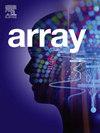A reinforcement learning based fuzzing technique for binary programs vulnerabilities detection
IF 4.5
Q2 COMPUTER SCIENCE, THEORY & METHODS
引用次数: 0
Abstract
Binary programs are susceptible to vulnerabilities that can lead to unauthorized access, data breaches, and system damage. Fuzzing is a promising technique for identifying vulnerabilities in binary programs. However, fuzzing is time-consuming and inefficient as many seeds are random and recurrently executed. This paper proposes a novel approach called Vulnerable State Guided Fuzzing (VSGFuzz) employs a heuristic mechanism for generating seeds to optimize vulnerability detection. This mechanism assesses the vulnerable probability of each function within the target binary program and employs reinforcement learning to mutate seeds based on a comprehensive reward calculation algorithm considering vulnerable probability and coverage assessment. Experiments evaluating VSGFuzz compared with other typical methods on several datasets demonstrated the superiority of the proposed method over other methods.
基于强化学习的模糊检测技术在二进制程序漏洞检测中的应用
二进制程序容易受到漏洞的影响,这些漏洞可能导致未经授权的访问、数据泄露和系统损坏。模糊测试是一种很有前途的识别二进制程序漏洞的技术。然而,模糊测试既耗时又低效,因为许多种子是随机的,并且是反复执行的。本文提出了一种新的漏洞状态引导模糊方法(VSGFuzz),该方法采用启发式机制生成种子来优化漏洞检测。该机制评估目标二进制程序中每个函数的脆弱概率,并基于考虑脆弱概率和覆盖率评估的综合奖励计算算法,采用强化学习对种子进行变异。在多个数据集上对VSGFuzz与其他典型方法进行了比较,结果表明该方法优于其他方法。
本文章由计算机程序翻译,如有差异,请以英文原文为准。
求助全文
约1分钟内获得全文
求助全文

 求助内容:
求助内容: 应助结果提醒方式:
应助结果提醒方式:


